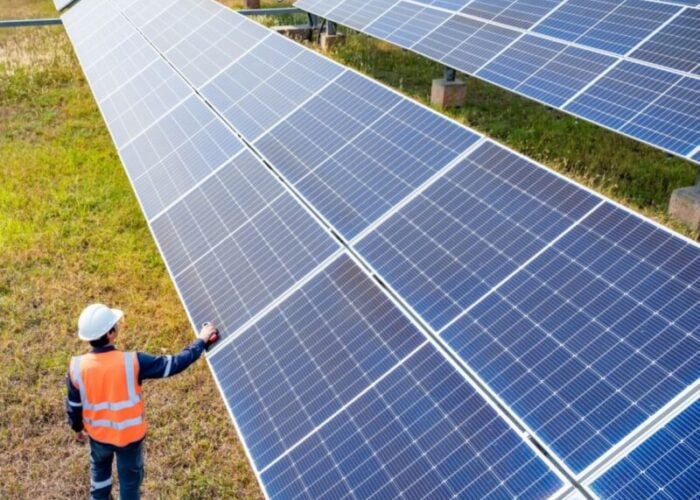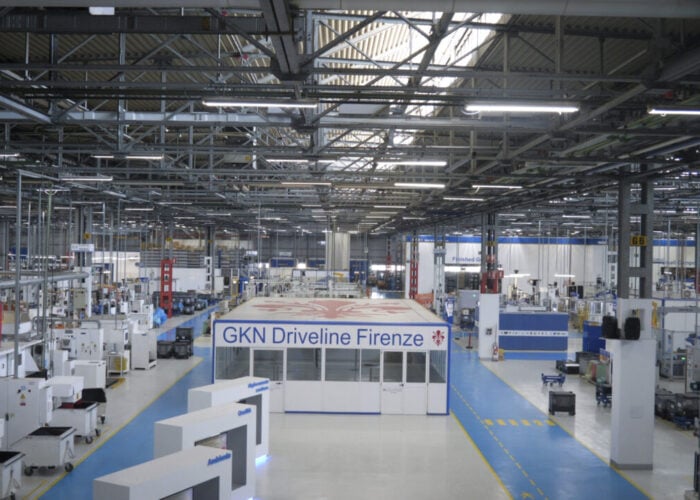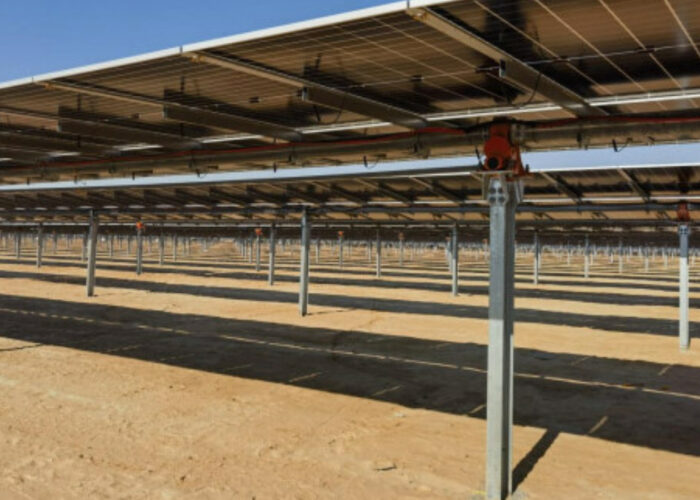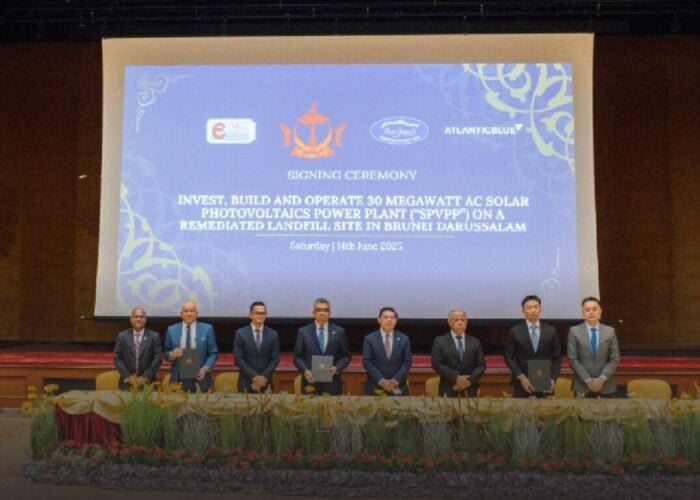Analysts have given a mixed response to the deal announced yesterday between US solar giants, First Solar and SunPower, to form a joint yield-co vehicle.
In the camp backing the deal were analyst firm Baird Equity Research and Deutsche Bank’s Vishal Shah, who described the deal as “probably the best strategy for both companies”. Others, such as Gordon Johnson of Axiom Capital, were more sceptical of the proposal, claiming there were risks inherent in the deal and the growth of the yield-co model generally that had not yet been fully appreciated by the market.
Unlock unlimited access for 12 whole months of distinctive global analysis
Photovoltaics International is now included.
- Regular insight and analysis of the industry’s biggest developments
- In-depth interviews with the industry’s leading figures
- Unlimited digital access to the PV Tech Power journal catalogue
- Unlimited digital access to the Photovoltaics International journal catalogue
- Access to more than 1,000 technical papers
- Discounts on Solar Media’s portfolio of events, in-person and virtual
Or continue reading this article for free
In a briefing note, Shah said: “This decision not only makes the potential yield-co one of the best growth stories out there, but it also offers the entity strong development capability in utility-scale/commercial [markets].
“This announcement, although unexpected, is a significant positive in our view,” Shah continued. “While SPWR had discussed plans to announce a yieldco by early this year during their Analyst day, shares were clearly not discounting any upside potential from this yield-co.”
Shah upgraded First Solar stock from ‘hold to ‘buy’.
Neither First Solar nor SunPower have yet revealed any detail of the proposed yield-co, citing SEC rules.
But Shah said that using the most “near term conservative assumptions”, he saw projects of around 640MW from SunPower and 755MW from First Solar that could be put into the yield-co. This would amount to around US$2.8 billion of equity value, “assuming a 50/50split, $0.117M/MW, and 85% dividend payout ratio at 5% yield (on the conservative side vs some of the other yield-cos)”, Shah wrote.
Shah added that First Solar has a total pipeline of 1.9GW of unsold projects with power purchase agreements, with capacity to add 1.5GW to the yield-co by the end of 2016.
Baird echoed Shah's assessment in a briefing note: “We believe not only is this a significant positive for both companies as it helps lower cost of capital while retaining some ownership of project cash flows, but it also benefits the overall solar industry as the leading companies continue to drive down the levelized cost of electricity.”
Baird also said the deal brought together what it considered to be the “two best technologies”. “FSLR and SPWR each have unique technology where FSLR’s panels and development experience is best suited for large scale utility projects. SPWR, on the other hand, does some of its best work on rooftops (although highly competitive in the utility-scale market) where its high-efficiency panels have an advantage.”
Yield-co risks
But Axiom’s Johnson questioned why First solar and SunPower had found it necessary to join forces to form a yield-co. Quoted in a blog post by Teirnan Ray on financial news site, Barron’s, Johnson wrote: “(1.) both SPWR and FSLR did not like the underlying economics of the projects left in their portfolio, and (2.) neither of them had the projects in their backlog to do a yield-co alone – suggesting they will need to aggressively find new projects to show investors future growth.
“Essentially, what SPWR and FSLR are doing is putting their poor assets into a yield-co to deflect from showing investors the real underlying economics of these assets. But, for now, it works. We don’t know what’s inside the yield-co, but the market is shooting first and asking questions last on all of this,” he said in reference to the surge in shares both First Solar and SunPower saw yesterday on the back of the announcement.
Speaking later in an interview on CNBC yesterday afternoon, Johnson went further, claiming that there was a risk from the market “ascribing a best case value scenario to First Solar right now, and SunPower”.
“With their yield-co they’re doing primarily utility-scale projects, and there are risks in those projects, whereas SunEdison is a bit more diversified,” he said, referring to the TerraForm yield-co operated by First Solar and SunPower’s rival, SunEdison.
Johnson said that the levels of dividend growth required by the yield-co model – something like 10% over the next five years – would require the First Solar and SunPower to “go and get more of a [project] backlog”.
“The reality is that if you get more yield-cos, you need more growth. And the reality is that…solar has a certain point where it reaches a certain percentage of your energy mix where it becomes disruptive, it causes disruption in your energy mix,” he said. “So the idea that solar’s going to grow forever into perpetuity is not true. At some point the growth is going to slow significantly. So the idea that you want a bunch of yield-cos, like SunEdison’s CEO has said, I don’t agree with that dynamic.”
Johnson was pressed on whether he thought countries such as India, which has plans for huge levels of solar deployment, could not offer yield-cos the sort of fuel they need for ongoing growth. SunEdison has made a big play in India in the past few months and has plans in the works for a separate yield-co focused on emerging markets.
Johnson replied: “For one company, yes, but if you get a bunch of companies doing yield-cos, then you’re going to have everyone competing for that market share.”
He said Canadian Solar was “probably up next” with plans for a yield-co, having just acquired project developer, Recurrent Energy, from Sharp.
“And then you’re going to have all the other Chinese guys that need to do this; this is the name of the game. The other key risk is if interest rates go up the required return on the yield-co is going to go up and that’s going to bring down the value of the stock.”
Johnson gave both First Solar and SunPower’s stock a ‘hold’ rating following yesterday’s announcement.







